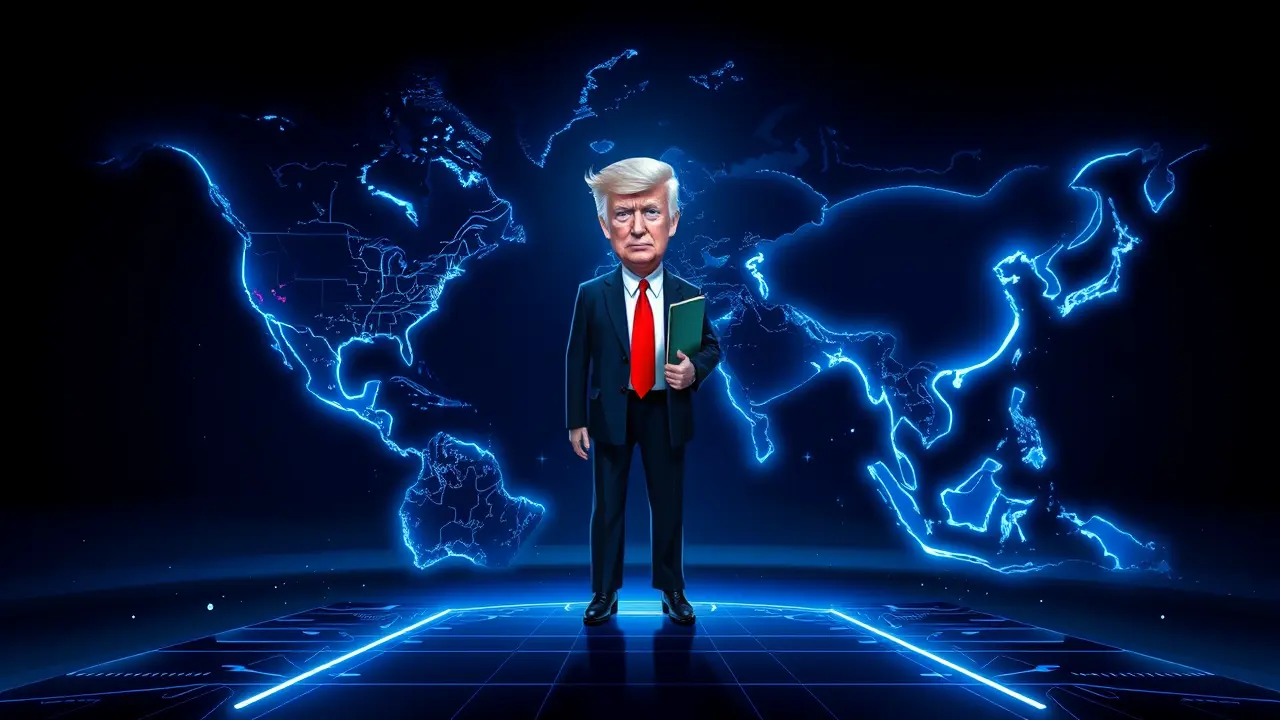
PoliticsdiplomacyBilateral Relations
US Shifts Focus from Asia Under Trump
RO
Robert Hayes
22 hours ago7 min read
The strategic architecture of American foreign policy, a cornerstone of global stability for decades, appears to be undergoing a profound and unsettling recalibration. The recent diplomatic tour by President Donald Trump through Asia, rather than reinforcing the United States' commitment to the region, has instead cast a long shadow of doubt, suggesting a deliberate pivot away from the 'Rebalance to Asia' doctrine meticulously constructed during the Obama administration.This strategic shift, veering toward a renewed focus on the Western Hemisphere, represents a fundamental departure from the assurances long held by America's network of allies and partners across the Pacific—nations from Japan and South Korea to the Philippines and Australia, who have structured their defense postures and economic expectations on the bedrock of unwavering American engagement. Historically, such a reorientation would be analyzed through the lens of grand strategy, reminiscent of Britain's 19th-century 'Splendid Isolation' or the interwar period's isolationist tendencies, both of which created power vacuums that adversarial forces were all too eager to fill.The Obama-era pivot, initiated in 2011, was a direct response to the rising economic and military clout of China, designed to reassure traditional partners and signal a sustained commitment to a 'rules-based international order. ' Its implementation involved not just symbolic visits but tangible military redeployments, with 60% of U.S. naval assets slated for the Indo-Pacific by 2020, and the diplomatic heavy-lifting of the Trans-Pacific Partnership (TPP), a trade agreement intended to cement America's economic leadership.The current administration's apparent retreat from this framework—evidenced by the withdrawal from the TPP and a transactional, bilateral approach to alliances—is not merely a change in tactics but a potential unraveling of a decades-long bipartisan consensus. Expert commentary from figures like Dr.Evelyn Rothman of the Center for Strategic and International Studies warns that this creates a 'strategic ambiguity' that Beijing is poised to exploit, accelerating its own territorial claims in the South China Sea and deepening economic inroads through its Belt and Road Initiative. The consequences are multifaceted: for allies, it forces a sobering reevaluation of their security dependencies, potentially spurring regional arms races or a reluctant accommodation with Chinese hegemony; for the global order, it signals a retreat of American leadership, creating a more multipolar and arguably less predictable world. The analytical insight here is that this is less a clean pivot and more a strategic diffusion, a dilution of focus that, much like Churchill's warnings about 'feeding the crocodile' in the 1930s, risks empowering competitors who perceive American retrenchment not as an opportunity for partnership, but for primacy.
#US foreign policy
#Asia pivot
#Trump administration
#Obama legacy
#international relations
#diplomatic strategy
#featured
Stay Informed. Act Smarter.
Get weekly highlights, major headlines, and expert insights — then put your knowledge to work in our live prediction markets.
Related News
© 2025 Outpoll Service LTD. All rights reserved.













